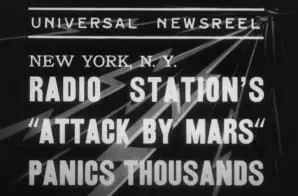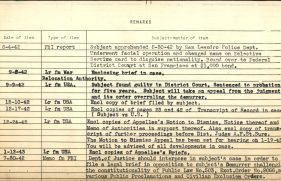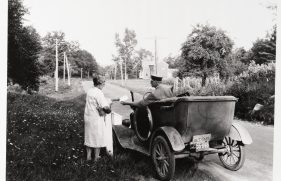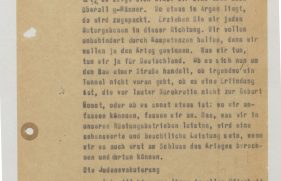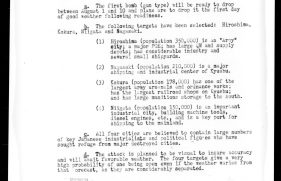This film clip from a Universal Newsreel shows a press conference with Orson Welles, who directed and narrated The War of the Worlds broadcast on CBS radio on October 30, 1938. This was a radio play of H.G. Wells’s novel, The War of the Worlds. First published in serial form in 1897, the novel tells the story of an alien invasion of England. Welles’s Mercury Theatre on the Air production changed the location to New Jersey and employed a series of news bulletins to heighten the realism of the story.
The next day, national media reported widespread panic, with citizens taking to the streets and scores of injuries resulting. The “panic” was more likely media hype: while some listeners were tricked, there is little evidence that the few who missed the frequent disclaimers actually took action because of the broadcast.
In this press conference that took place the following day, 23-year-old Orson Welles explains why he didn’t expect listeners to think the well-known story was true. The actor-director’s exhaustion is more than just mental – Welles had stayed up until dawn rehearsing a new play.
The original release sheet for this film reads: RADIO PLAY TERRIFIES NATION. New York, N.Y. Thousands of radio listeners throughout the U.S. are frightened into mass hysteria by a dramatization of H.G. Wells’ old thriller, “The War of the Worlds”, as staged by Orson Welles, young actor-manager.
